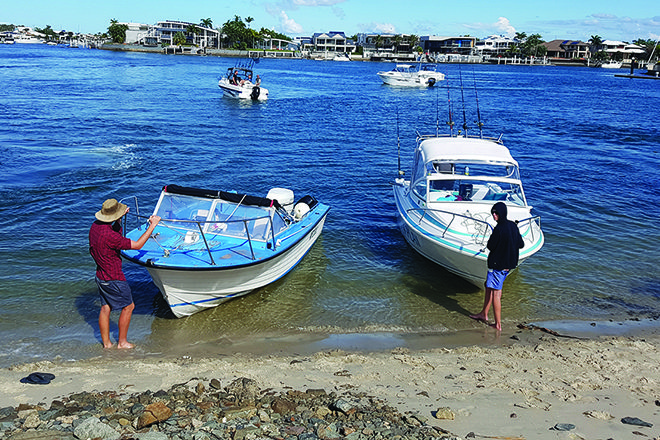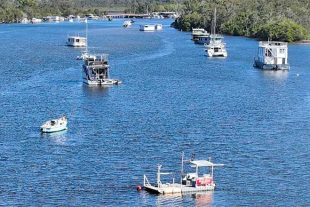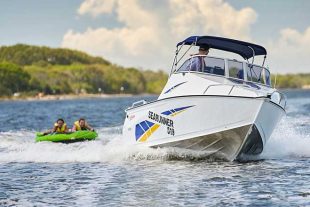BUSH ‘n Beach has brought Nautilus Marine Insurance on board to expand the fine print and provide readers with clear, easy-to-understand and helpful tips on protecting their boating assets.
The scenario
Boats and engines work in the most spectacularly beautiful but ‘anti-machinery’ environments imaginable.
Engines virtually spend their entire working lives in first or reverse gear, going uphill underwater, while the boat is being dragged across the face of the water, which is often salty and corrosive, before it is nosed up onto a beach, equating to a quick rub under the bow with sandpaper.
The good news is today’s materials, manufacturing standards and practices, designs and electronic management systems make them immeasurably more reliable and durable.
They still wear, but if given the manufacturer’s recommended levels of servicing and maintenance, deterioration is a slow but normal process.
And being a normal process, your boat’s insurance policy, even it is from a marine specialist like Nautilus, does not cover wear and tear, which is part of the aging process.
It’s a little like the exterior paint on your house, or the carpets within it.
If rain, wind, sun, dust and age damage the paintwork over 15 years, would you expect your house insurer to cover the cost of repainting?
Three kids for 16 years inflicting their best on your carpet – think your house insurer is going to stump up for its replacement?
Of course not… and so it is with boat insurance.
However, should some unfortunate incident befall your vessel such as it being struck by another vessel while at anchor, that comes under the heading of accidental damage, rather than deterioration.
And accidental damage is insurable – you can lodge a claim to cover the cost of approved repairs.
In between those two extremes – normal deterioration through wear and tear and a calamitous event – are myriad ‘case by case’ circumstances.
A boat stored in a humid climate under a tight-fitting cover that severely restricts air flow could suffer damage to timber due to ‘sweating’.
That deteriorated timber is not a result of damage – it’s from lack of care.
Likewise, it is unrealistic to expect that over time there will not be some sun and salt damage caused to vinyl seat covers.
Even wetsuits, if not thoroughly washed out and dried, can trap little pockets of salt water that then dry, leaving sharp little salt crystals that begin abrading the neoprene.
Engine computers will tell insurers how long you ran the engine at high temperature after a plastic bag blocked the water intake to your cooling system.
Was damage caused very quickly or was there a lack of good seamanship where the boat driver just ploughed on, perhaps even ignoring warning alarms?
If the skipper did plough on, was it in the interests of moving the vessel and crew to a safe location, or was it simply to continue the day’s outing with little regard to potential engine damage?
Accurate descriptions of the event, or conversely, fibs the owner might be tempted to tell, very often are revealed quickly by on board electronics that monitor a variety of engine functions.
Those results will help guide the insurer to a determination.
The concept of gradual deterioration also shows why a company like Nautilus requires an authoritative report from an accredited marine dealership or repairer on any vessel 20 or more years old before deciding whether or not to offer insurance cover.
The two decades of wear and tear might not be an issue, as evidenced by the number of superbly maintained and refurbished vessels travelling our waterways with full insurance cover.
However, if termites or other bugs have invaded your hull, that would be a maintenance consideration, rather than one relating to accidental damage.
Insurers vigilantly investigate claims that might appear at face value to be deceptive.
The key reason is to avoid fraud and the consequential pressures on increasing the price of premiums across the board, including those paid by honest boaties.
If you are unsure where you stand, your first call should be to your insurer seeking clarification.
As always, any special conditions and excesses should always be explained clearly in your insurance policy’s product disclosure statement.
Always check your PDS and if you have a query, ask for clarification.
If you need further information, you can contact Nautilus Marine Insurance on 1300 780 533 for any boat insurance requirements.Win a Nautilus Prize Package
Nautilus will also be answering your boat insurance questions of a general nature and will be offering a great bi-monthly prize to the best questions received.
The prize is a Nautilus Marine merchandising pack comprising a collapsible chiller bag, handy marine sports bag and cap.
Just email your questions to qld@nautilusin surance.com.au









